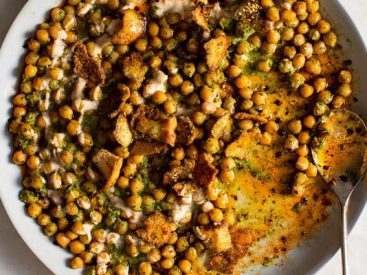Leek, potato and smoked haddock stew with bacon and parsley This makes a welcome change from some of the richer, meatier, slow-cooked braises I tend to make at this time of year. Swap the potatoes for celeriac, if you like, but the leeks are essential: they give the stew […]
Delicious!
Delicious!



